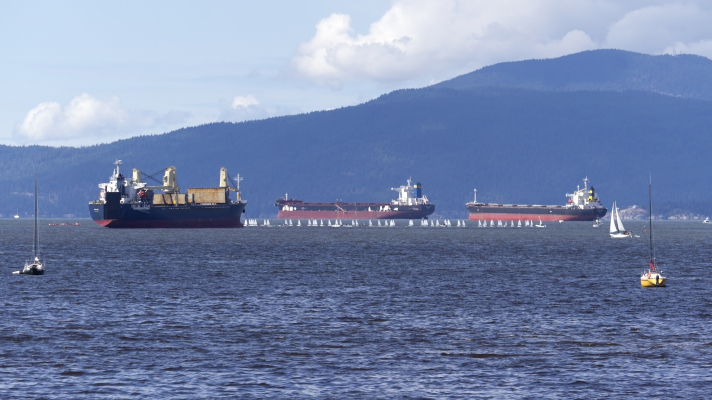The Waterborne Technology Platform welcomes the revision of the International Maritime Organization’s (IMO) strategy to reduce greenhouse gas emissions from international shipping. The targets set will also dictate the work being carried out in the partnership on Zero-Emission Waterborne Transport.
On 7 July, the IMO adopted its revised strategy to reduce greenhouse gas emissions from international shipping. This strategy includes an ambition to reach net-zero GHG emissions from international shipping close to 2050, a commitment to ensure an uptake of alternative zero and near-zero GHG fuels by 2030, as well as indicative checkpoints for 2030 and 2040.
The directions for the revised strategy are based on energy-efficiency measures for new ships, as well as reducing CO2 emissions by at least forty per cent by 2030, compared to 2008. In addition, the strategy supports the uptake of zero or near-zero GHG emission technologies, fuels and/or energy sources to represent at least five per cent, striving for ten per cent, of the energy used by international shipping by 2030. Finally, it is envisaged that international shipping will reach net-zero GHG emissions by around 2050.
Also read: Jaap Gebraad to head Waterborne Technology Platform as secretary general
Zero-Emission Waterborne Transport
The targets set are particularly important for the partnership on Zero-Emission Waterborne Transport, a cooperation between the European Commission and the Waterborne Technology Platform. This partnership aims to develop and demonstrate zero-emission solutions for all main ship types and services before 2030.
The strategic research and innovation agenda of the partnership is currently being updated, and the final version is expected to be approved by the end of the year. All stakeholders are invited to provide input to the update of the agenda, and a dedicated event, the Waterborne Days, is scheduled for 26 and 27 September 2023 in Brussels.
‘The “Zero-Emission Waterborne Transport” partnership is committed to research, development and innovation of technologies needed to eliminate GHG emissions and other pollution to air and water, including underwater radiated noise,’ says Eero Lehtovaara, Chair of the Board of Directors, Waterborne TP. ‘These technologies are vital to achieving the emission targets. Thereby, the revision of IMO’s GHG reduction strategy is very timely. Currently, we are in the process of updating our research agenda, to incorporate new policies, rules and regulations, as well as the state-of-play on technology development, to ensure compliance with European and international emission targets. In this sense, the contribution of all European waterborne transport stakeholders to the Waterborne Days will be key.’
Also read: The future of EU waterborne transport: carbon-neutral and competitive








